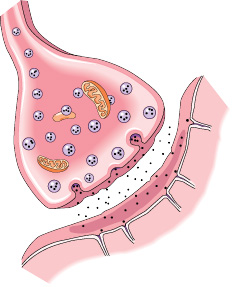As Long As You're At It...Most people get involved in a fitness program because they want to improve the quality of their lives. Since a suitable state of mind geared for health improvement already exists, one might also consider other lifestyle changes, including weight loss when appropriate, better stress management, or quitting cigarettes. Smoking cessation is particularly difficult, and there are as many different methods to quit smoking as there are smokers, from acupuncture to antidepressants. Whatever the option one chooses to quit the use of tobacco, one thing is certain: no method works unless the person is ready to quit. A good starting point is to prohibit oneself from smoking in any enclosed location, such as at home or in the car. Making it less convenient to light up reduces the number of units smoked, and the decline in the re-breathing of indoor smoke particles is an added bonus. Restraining any and all smoking from common areas such as one's home may also make it easier if only one of the spouses from a couple that smokes, wishes to quit. Since smoking is such an entrenched addiction, the brain will find inexhaustible excuses for a person to continue to "enjoy" nicotine, such as, using it to "soothe" the nerves because one has had a hard day at work. If you need a plan to quit, you can try a rigid program that limits the number of cigarettes allowed on a twenty-four hour period, reducing it by a pre-determined number. For example, try decreasing the total number of cigarettes smoked, reducing the daily maximum each week by one, thus avoiding many of the symptoms of withdrawal. If you can't make it on your own, ask your doctor about oral medications or patches to help you quit. Remember that smoking is a major risk factor for osteoporosis. Weight loss is one of the main incentives for obese people to exercise, and there are varied explanations for the weight loss observed. Not only does an exercise routine burn calories at a higher rate, but it will also decrease hunger for one to two hours afterwards; therefore, finishing one's fitness program just before dinnertime is a natural appetite suppressant and an added bonus to any weight loss program. Exercises also reduce anxiety and the need to consume 'comfort foods," and it may help stabilize blood sugar levels. Don't get hung up on what the bathroom scale shows when you start a fitness program. It is not uncommon for a person to lose one or two pounds of excess fat per week while exercising, but some fluid retention or loss may occur at first, depending on the individual, and it may translate into inaccurate weight readings. Many times the scale does not accurately reflect the true health benefits gained from exercising because as fat is burned and muscles are strengthened, the body becomes denser, more compact, thus a person is more likely to notice a reduction in dress or pant sizes, rather than a huge amount of weight loss. 
Life stressors are unavoidable, but the way we choose to deal with anxiety can be modified. Stress management is a term widely used but poorly defined; it essentially refers to one's ability to control and reduce the body's harmful reaction to life's negative events. For instance, stress can cause a massive release of potent chemicals, such as adrenaline and cortisol into the bloodstream with a significant impact on the heart, blood vessels, and the brain itself. Exercises, on the other hand, can be such powerful stress reducers that psychiatrists often recommend a fitness program as part of the therapy for people with mild depression, before embarking on a regimen of drugs. Interestingly, women seem to be more susceptible than men to the positive effects that exercises have on mood, to the point that sudden discontinuation of daily exercises can cause symptoms similar to drug withdrawal, with generalized aches, fatigue, and depression. When appropriate, we recommend that both women and men continue to exercise the unaffected parts of the body after an injury, to avoid the withdrawal feeling from sudden exercise discontinuation. Exercising the upper part of the body in case of a leg fracture, or taking up swimming after a low back injury that prevents other aerobic routines, are examples of adequate fitness substitutions. Pain and the profound physiologic effects exerted on it by exercises have been well documented, both in humans as well as animals. For example, athletes who get injured during a game may remain unaware of the severity of their condition until the competition is over. Endorphins are the small morphine-like molecules that are frequently cited as the brain chemicals responsible for this pain blockade but the scientific data is still wanting. Other substances may also be involved, including cortisol, the natural steroid hormone, which is released during fight-or-flight situations. Independent of which brain chemicals are responsible for exercise-induced analgesia, a fitness program remains one of the main therapies for chronic painful conditions, such as fibromyalgia and osteoarthritis. |
LifestyleThe Internal Organs and Posture |